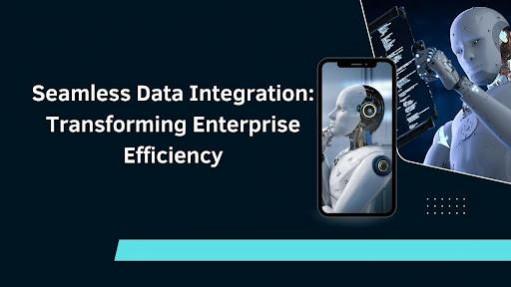
A New Era of Enterprise Connectivity, Ravi Sankar Susarla, a distinguished expert in enterprise data ecosystems, explores the transformative impact of Workday integrations on modern organizations. His research highlights how seamless integration of human capital and financial data can drive efficiency, enhance decision-making, and reduce operational challenges.
Bridging the Data Gap
Organizations traditionally struggle with fragmented data systems that create inconsistencies, compliance risks, and operational inefficiencies. Workday integrations offer a comprehensive solution by establishing a unified ecosystem that seamlessly synchronizes critical information across employee records, payroll processing, and financial transactions.
These strategic integrations eliminate time-consuming manual reconciliation processes while ensuring data accuracy and consistency. By creating a single source of truth, Workday enables improved accessibility and visibility across departments, empowering decision-makers with reliable, real-time information.
The Power of Automation
Advanced integration technologies, including Workday Studio, Enterprise Interface Builder (EIB), and Core Connector, play a crucial role in streamlining enterprise operations. Workday Studio enables the development of complex, custom integrations with visual tools, significantly reducing implementation time. EIB allows business analysts to configure data imports and exports without requiring extensive coding knowledge, making integration more accessible. Meanwhile, Core Connector ensures real-time bidirectional data flow, enhancing system reliability and security.
These sophisticated integration solutions enable organizations to establish a comprehensive technology ecosystem that adapts to evolving business requirements. By facilitating seamless communication between Workday and third-party applications, these tools eliminate data silos and manual processes that traditionally hindered productivity. The resulting automation not only accelerates workflows but also improves data accuracy and governance across the enterprise. With reduced technical barriers and enhanced configurability, businesses can rapidly deploy integrations that deliver immediate operational benefits while maintaining the flexibility to scale
Enhancing Workforce Management
One of the key advantages of Workday integrations is their impact on workforce management. By synchronizing employee demographics, compensation structures, and time-tracking systems, organizations can optimize resource allocation and improve decision-making. Real-time access to workforce data allows HR teams to identify trends, address staffing needs efficiently.
Financial Data Accuracy and Compliance
Workday integrations also strengthen financial operations by ensuring accurate data transfers between payroll, accounting, and financial planning systems. Organizations implementing these solutions experience a significant reduction in payroll discrepancies and compliance-related incidents. Automated financial reconciliations eliminate the risk of errors, providing CFOs with precise forecasting capabilities and better visibility into financial performance.
Accelerating Business Processes
With integrated data ecosystems, enterprises can accelerate critical business processes. Payroll processing times, benefits enrollment, and onboarding workflows are completed faster, reducing administrative burdens. This increased efficiency translates into substantial cost savings and allows HR and finance teams to focus on strategic initiatives rather than manual tasks.
Unlocking Analytical Insights
A well-integrated system enhances analytical capabilities by consolidating data from various sources into a single, reliable platform. Organizations leveraging Workday integrations can generate real-time reports, conduct predictive analysis, and gain deeper insights into workforce productivity and financial trends. This data-driven approach empowers leadership teams to make informed decisions that drive long-term business success.
The Future of Enterprise Integration
As technology continues to evolve, the role of Workday integrations in shaping enterprise efficiency will only grow. Organizations investing in comprehensive integration frameworks can expect to see sustained improvements in data quality, operational agility, and overall business performance. By embracing these innovations, enterprises can build a robust digital foundation that supports future growth and transformation.
In Conclusion,The research by Ravi Sankar Susarla underscores the vital role of Workday integrations in modernizing enterprise operations. By automating data flows, enhancing compliance, and improving analytical capabilities, these integrations enable organizations to operate with greater accuracy and efficiency. As businesses strive to remain competitive in a data-driven world, seamless integration will be the key to unlocking their full potential.












!['Valentine's Week in Parliament'? : Saugata Roy, June Malia's cosy conversation amid house session goes viral [Watch]](https://data1.ibtimes.co.in/en/full/828484/valentines-week-parliament-saugata-roy-june-malias-cosy-conversation-amid-house.jpg?w=220&h=138)




